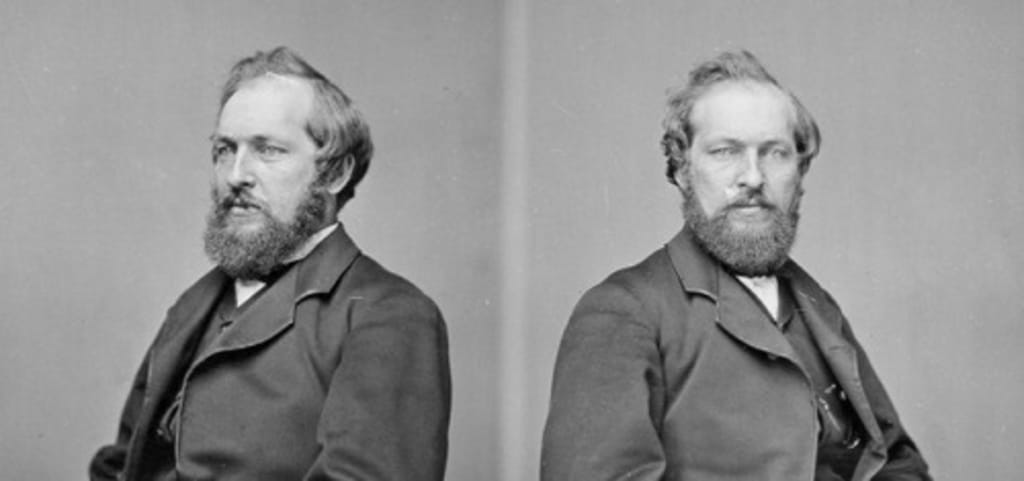
James Garfield, the 20th President of the United States, occupies a peculiar space in history, often overshadowed by the brevity of his presidency and the tragic circumstances surrounding his untimely demise. Despite being in office for a mere 200 days, Garfield's life and legacy reveal a remarkable journey from abject poverty to the highest echelons of political power. This article delves into the lesser-known facets of Garfield's life, his unexpected rise to the presidency, and the enduring impact of his legacy on the nation.
Born in a one-room log cabin in Ohio, James Garfield's early life was defined by abject poverty. The cabin, with its plank floor and windowpanes made of oiled paper, set the stage for a challenging upbringing. At the tender age of two, tragedy struck as his father passed away, leaving his mother to care for four children in dire straits. Working the land with the help of Garfield's older brother, she managed to save enough money by the time he turned four to afford him a pair of shoes, a luxury in their impoverished circumstances.
Garfield's early years were marked by resilience and a thirst for knowledge. At the age of sixteen, he ventured to work on the Erie and Ohio Canal, only to return home after contracting malaria. Undeterred by setbacks, he found an opportunity for education when his mother's savings allowed him to attend the Western Reserve Eclectic Institute, a one-building prep school. Garfield's dedication to learning was so profound that, within a year, he transitioned from a janitorial role to assistant professor, teaching literature, mathematics, and ancient languages.
His academic journey continued as he moved to Williams College in Massachusetts, where he graduated in just two years. This remarkable achievement set the stage for Garfield's entry into state politics in Ohio, eventually leading him to serve in the Union Army during the Civil War. The experiences gained during the war fueled his political career, culminating in his election to Congress.
Garfield's ascent to the presidency was neither planned nor desired. At a nominating convention deadlocked and seemingly without a viable candidate, he became the Republican nominee on the 36th ballot against his will. Shocked, sickened, and described as pale as death, Garfield reluctantly accepted the nomination. His campaign for the presidency was unconventional; instead of actively participating, he preferred to work on his 160-acre farm, tending to various tasks from building a barn to shopping for curtains.
Despite his initial reluctance, Garfield's campaign platform as a Republican focused on civil rights and the welfare of freed slaves, earning support from prominent figures like Frederick Douglass. The election saw a 78% voter turnout, and Garfield secured victory by a narrow margin. His presidency was marked by a commitment to progressive ideals, placing emphasis on the rights of marginalized communities.
Just as Garfield's presidency began, tragedy struck with his assassination after a mere 200 days in office. Charles Guiteau, a religious fanatic delusional to the point of psychosis, shot and killed Garfield. Guiteau's defense centered on claiming insanity, asserting that he was merely an instrument of God's will. The insanity defense, prevalent at the time, did not spare Guiteau from a guilty verdict and subsequent execution, reflecting the public's visceral reaction to the heinous act.
Garfield's brief tenure in office did not afford him the opportunity for significant legislative achievements. However, his legacy transcends policy considerations, resonating in the unity he inspired during the challenging post-Civil War era. His untimely death served as a catalyst for change, leading to the establishment of the civil service system. This section explores the profound impact of Garfield's illness and death on the nation's collective consciousness, ushering in a new era of governance and reform.
In the wake of Garfield's assassination, public outrage over the corrupt "spoils system" for government job contracts reached a boiling point. The popular revolt that followed led to the establishment of the civil service system, aimed at eliminating political patronage and ensuring merit-based appointments. This enduring reform, directly linked to the tragic events surrounding Garfield's death, reshaped the landscape of government employment and remains a lasting testament to his legacy.
After Garfield's death, his widow undertook a monumental task to preserve his legacy. She assembled his books and papers in a wing of their farmhouse, establishing the nation's first-ever presidential library. This section explores the significance of this early example of presidential library creation, underscoring its role in preserving the intellectual contributions of a leader whose time in office was tragically curtailed.
James Garfield's journey from humble beginnings to the presidency, albeit brief, is a tale of resilience, determination, and unintended consequence. His legacy, often overshadowed by the tragedy of his assassination, extends far beyond the confines of legislative achievements. Garfield's impact on the nation's governance, the establishment of the civil service system, and the creation of the first presidential library highlights the enduring influence of a leader whose ascent to power and subsequent fall left an indelible mark on American history. As we reflect on Garfield's life, we uncover a narrative rich in complexities and contradictions, offering valuable insights into the challenges of leadership and the capacity for transformative change in the face of adversity.






Comments
There are no comments for this story
Be the first to respond and start the conversation.